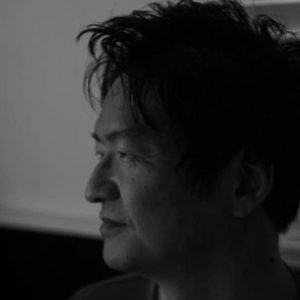The 21st Design Fundamentals Seminar "How Understanding Human Needs & IKS Can Help Us Achieve Sustainability"
Indigenous knowledge systems (IKS) play a critical role in helping us understand the past, present and are helping us contribute towards a sustainable future. IKS is also critical to helping us better understand and reframe sustainability issues as related to sustaining human existence, which is a human need. Traditional discourse on IKS and sustainability tends not to focus on human needs. Human needs are often identified as infinite, ever-changing, dependent on circumstance, culture, or time. However, Max-Neef (1992) suggested that this is not so — on the contrary, needs are finite and universal. He defined nine basic human needs subsistence, protection, affection, understanding, participation, leisure, creation, identity and freedom. When looking at IKS practices linked to their needs to feed, clothe, co-operate, share their knowledge, express themselves, help themselves, learn from each other, Invent, design solutions, interpret local knowledge and practices, get to know themselves, grow, and develop awareness.
Lecturer
Dr. Keneilwe Munyai
Dr. Keneilwe Munyai is a human-centred design consultant who trains and capacitates individuals and organisations in human-centred approaches to innovation and problem solving, combined with the design thinking process to help them develop their organisational strategy, innovation strategy, services, and products that meet human needs using insights from different perspectives in various parts of the African continent. She has worked in sectors such as academia, private, public, and NGOs. She has experience in multi-stakeholder participatory processes, collective efficiency, and using various innovation approaches. As a design educator she teaches the transdisciplinary design module at the Sustainability Institute, she also teaches the introduction to human-centred design at UCT GSB in the MPhil in inclusive Innovation and in the vaccinology course in health sciences faculty where she is also an honorary research associate.
Date
May 25th, 2021: Opens at 17:20 p.m, performance starts at 17:30 p.m. in Japan Time.
Venue
Online (Zoom)
Review
Based in Cape Town, South Africa, Dr. Munyai plays a leading role in various projects on the African continent, collaborating with various international and private organizations. At the heart of her designs is the concept of the “Indigenous Knowledge System.” This concept, combined with the ideas of Chilean economist Manfred Max-Neef, seems to form a unique design philosophy.
In his book Human Scale Development (1991), Max-Neef argued that humans have nine “needs” (subsistence, protection, affection, understanding, participation, idleness, creation, identity, and freedom) that are universal for human beings and independent of cultural differences. Moreover, according to him, needs are not merely deficiencies, but also resources that empower and enable people to fulfil them. When people devise and actualize “the means to satisfy their needs,” they cooperate, establish a community, and actualize their relationships through nature and tools.
According to Max-Neef, economic goods become meaningful only when organizing the “satisfiers” of needs. For example, to satisfy the needs of subsistence and protection, we need to collectively organize stable residential relationships that allow us to harmoniously coexist with the people and the environment surrounding us, and a house is among the elements of this organization. However, people mistakenly think that the last element, the house itself, is their own need, and that their needs will be satisfied as long as they personally acquire it on the market. This misunderstanding, Max-Neef argues, creates the pathology of modern society.
Dr. Munyai seems to think that design in its fundamental sense is not about economic goods as Max-Neef calls them, but about first organizing the social means of satisfaction. Therefore, a designer is not a person who renders products esthetically pleasing and increases their market value, but one who organizes appropriate means of fulfillment in society to enable people to truly satisfy their needs and live sustainably.
Naturally, for the means of fulfillment to function effectively in the place which people inhabit, the means must be rooted in the land, that is, their way of life, their natural and historical environment. The people who live there are, so to speak, greater experts in this respect than outside designers. The designer learns from the accumulated knowledge of the local place and people and collaborates with the “experts” to complete the design.
If you think about it, colonialism in development assistance results from the confusion between needs and goods. Even though the needs of survival and protection are common to all of humanity, the way in which these needs are met and the goods needed for each place vary locally. Nevertheless, for example, if there is a housing shortage in Cape Town, the “West” will bring in large numbers of identical, standardized, and expensive prefab houses.
As an example of land-based design, Dr. Munyai cited a project called “Sandbag Housing” by MMA Architects in South Africa. In response to the current situation in which more than two million people live in one-room huts, local community members living in a natural environment full of sand are collaborating to fill sand bags with sand, pile them inside a metal frame, and plaster it on top to build a house. This project is unique in that the people are not simply given things from the outside, but are able to create their lives on their own, in a way that suits the community and natural environment surrounding it. Further, the project creates not only safety and protection, but also a complex of needs for affection, understanding, participation, idleness, creativity, identity, and freedom.
Dr. Munyai called this kind of value in design “collective efficiency.” As I listened to her powerful speech, I was convinced that efficiency is not a measure of competition achieved by the individual by eliminating idleness and excluding others, but a comprehensive effect achieved through the overlapping and cooperation of various others, in which designers are involved.
(Toru KOGA)


